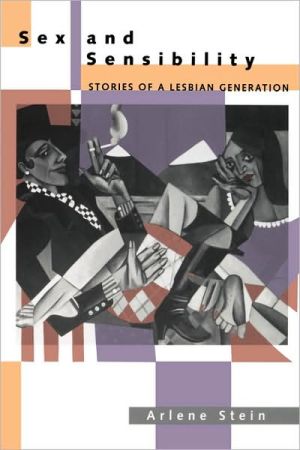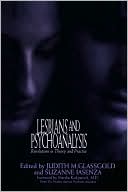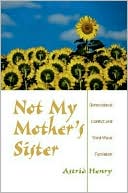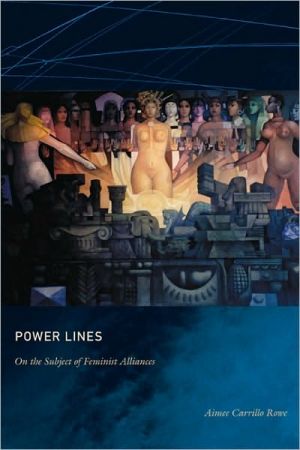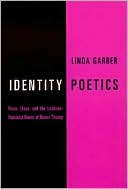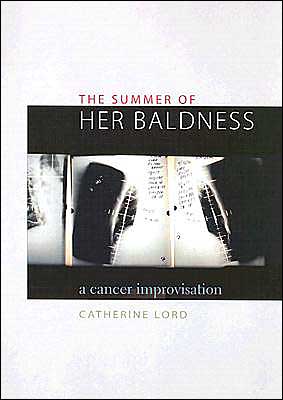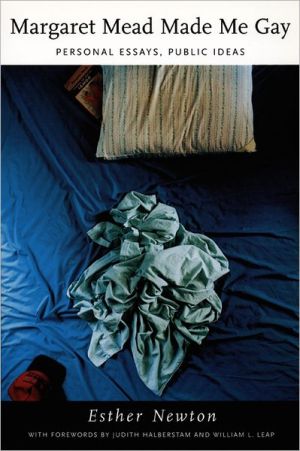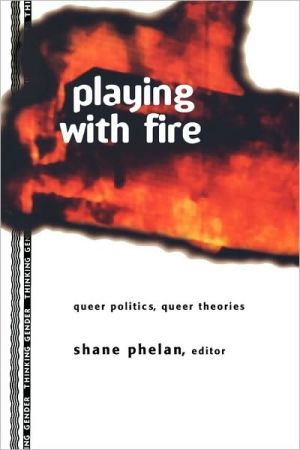Sex And Sensibility
In the first book to analyze shifts in lesbian identity, consciousness, and culture from the 1970s to the 1990s, Arlene Stein contributes an important chapter to the study of the women's movement and offers a revealing portrait of the exchange between a radical generation of feminists and its successors. Tracing the evolution of the lesbian movement from the bar scene to the growth of alternative families, Stein illustrates how a generation of women transformed the woman-centered ideals of...
Search in google:
"In describing brilliantly the great complexity of sexual identity as an individual, a cultural and a political project, Arlene Stein definitively reshapes our understanding of sexuality. No one, after reading Sex and Sensibility, can think that sexual orientation is an obvious matter."—Nancy J. Chodorow, author of Femininities, Masculinities, Sexualities: Freud and Beyond"Stein does an outstanding job of relating the development of a queer sensibility in the 1990s to the foundation created by gay rights and feminist movements a generation earlier."—Ellen Lewin, author of Lesbian Mothers: Accounts of Gender in American Culture"At last a work that escapes the stultifying quagmire of the feminist 'sex wars' between social constructionism and essentialism. Arlene Stein is the Jane Austen of lesbian identity politics."—Judith Stacey, author of In the Name of the Family Library Journal These two books are so similar as to be interchangeable; the only significant difference is that one study was done on the West Coast and the other on the East. Stein (sociology, Univ. of Oregon) interviewed 30 women in the San Francisco area, while Esterberg (sociology and director of women's studies, Univ. of Missouri, Kansas City) interviewed 43 women in an unidentified Northeast community. Focusing on the integration of feminism, antiracism, and social justice with lesbian lives, both discussions are fascinating, and their portrayal of lesbian identity as changeable and fluid is valuable. Although the word bisexual does not appear in Stein's title, her focus on bisexual women is easily as strong as Esterberg's. And Stein's discussion of separatists may be patronizing when she suggests that "separatism would give the lifelong lesbian some insurance that women she became involved with would not leave her for men." Despite these minor flaws, these are both important contributions. Recommended for academic libraries, especially those supporting lesbian, gay, and bisexual studies.Pauline Klein, DeKalb Cty. P.L., Decatur, Ga.
Sex and Sensibility\ Stories of a Lesbian Generation \ \ By Arlene Stein \ The University of California Press\ ISBN: 0-520-20674-6 \ \ \ Chapter One\ Sex and Sensibility: Stories of a Lesbian Generation examines shifts in lesbian identity and culture from the 1970s to the present. It explores the complex issues of identity that lesbians have confronted as they have defined themselves in relation to their communities and to society at large. Contributing an essential chapter to the emerging history of the contemporary feminist movement, Sex and Sensibility traces the evolution of the lesbian feminist movement from the bar scene to the flowering of alternative families, showing how a generation of women-baby boomers-transformed the ideals of feminism into a culture and lifestyle. Based largely on in-depth interviews with forty women, the book begins with a look at the cultural context in which lesbians of the baby boom cohort came of age, the 1950s and 60s. It then highlights the stories of three women who formed sexual identities in the context of lesbian feminism. The book documents how a tension between two identity projects-a "minoritizing" project which sought to fix lesbians as a stable minority group, and a "universalizing" project which tried to liberate the "lesbian" in every woman-colored the interactions among women of this cohort. By the late 1970s, a combination of structural and ideological factors conspired to "decenter"lesbian feminism. The baby boom generation was aging and settling into families and careers of various forms. A series of ideological clashes over sexual, racial and other differences exploded. Baby boomers grappled with these and other changes by acknowledging the limits of lesbian identifications and the "multiplicity" of identity. Some found that a lesbian identity no longer suited their needs. An examination of the lives of "ex lesbians" reveals the limitations of the dominant binary conception of sexuality. In the conclusion, the stories of ten women of the "postfeminist generation" are introduced to explain cultural shifts signified by "queer" theory and politics. The book ends with a discussion of the implications of these findings for contemporary sexual politics. The notion that one category of experience, such as sexual identity, could ever completely describe one's relationship to the world is a fiction. But as long as people are categorized and stigmatized according to sexuality, sexual identities are "necessary fictions." \ \ \ \ \ Excerpted from Sex and Sensibility by Arlene Stein Excerpted by permission.\ All rights reserved. No part of this excerpt may be reproduced or reprinted without permission in writing from the publisher.\ Excerpts are provided by Dial-A-Book Inc. solely for the personal use of visitors to this web site. \ \
AcknowledgmentsIntroduction: Questions of Identity11From Old Gay to New: Symbolic Struggles and the Politics of Lesbian Identity232Difference, Desire, and the Self: Three Stories473Becoming Lesbian: Identity Work and the Performance of Sexuality654Is She or Isn't She? Constructionism and the Problem of Commitment915Sex, Kids, and Therapy: The Decentering of Lesbian Feminism1236Sleeping with the Enemy? Ex-Lesbians and the Reconstruction of Identity1547Seventies Questions for Nineties Women184Appendix: Methodological Notes202Notes211Bibliography233Index251
\ Library JournalThese two books are so similar as to be interchangeable; the only significant difference is that one study was done on the West Coast and the other on the East. Stein (sociology, Univ. of Oregon) interviewed 30 women in the San Francisco area, while Esterberg (sociology and director of women's studies, Univ. of Missouri, Kansas City) interviewed 43 women in an unidentified Northeast community. Focusing on the integration of feminism, antiracism, and social justice with lesbian lives, both discussions are fascinating, and their portrayal of lesbian identity as changeable and fluid is valuable. Although the word bisexual does not appear in Stein's title, her focus on bisexual women is easily as strong as Esterberg's. And Stein's discussion of separatists may be patronizing when she suggests that "separatism would give the lifelong lesbian some insurance that women she became involved with would not leave her for men." Despite these minor flaws, these are both important contributions. Recommended for academic libraries, especially those supporting lesbian, gay, and bisexual studies.Pauline Klein, DeKalb Cty. P.L., Decatur, Ga.\ \
